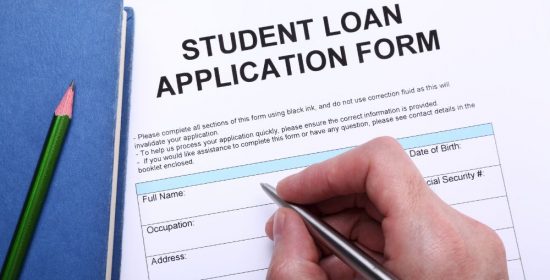Should you use private student loans to help pay for college? Learn what student loans are, how they work, and how to apply for student loans.
If you’re planning on going to college, you should carefully evaluate how much money you will need to complete your degree.
Students usually research and apply for scholarships, and financial aid from their school, and find money from other sources, including family funds. After exhausting these avenues, most students still have a funding gap, and that’s where student loans come in.
What are Student Loans and how do they work?
A student loan is a money that you borrow to help pay for school with the expectation that you will pay that money back in the future. Students and their parents can borrow either private or federal student loans to pay for higher education.
These loans can be used to pay for many school-related expenses, including:
- Tuition
- Room and board
- Books and school supplies
- Transportation costs
- Technology equipment such as a computer or related software
- Food, utilities, and other common living expenses
4 Steps to Apply for Student Loans
Before you apply for a student loan, be sure to consider multiple factors, such as the loan’s interest rate and its potential long-term impact on your credit score and budget. Students interested in applying for college loans should consider the following:
1. Explore Your Options
The first step is to look into loan options. Weigh out private student loan interest rates, repayment plans, and monthly payments. Consider how much your loan will cost you in the long run.
Ascertain that you are able to secure a co-signer if a loan requires it. Also, find out whether you can remove the co-signer after you’ve made payments.
2. Check Eligibility
To qualify for a private student loan, you must attend an eligible school and plan to use the loan money to pay for educational expenses. You may also need to attend school full-time.
In general, to qualify for private student loans, you must meet the following requirements:
- Be at least 18 years old
- Have a high school diploma or GED certificate
- Have a Social Security number
- Be a U.S. citizen or eligible non-citizen
Additionally, you must meet the financial institution’s credit and income requirements. A co-signer, such as a parent or a guardian, if you are applying for an undergraduate loan and don’t meet all requirements on your own.
3. Gather Information
To apply for private student loans, you’ll need to provide personal information, including your Social Security number (and your co-signers), birthdate, and home address. You may need to submit proof of employment and income as well.
Furthermore, you may be asked to provide financial information such as your assets, rent or mortgage, and tax returns.
4. Submit Your Application
Once you’ve completed your private student loan application, your financial institution will contact your school to verify your information and eligibility. It’ll then process the loan and notify you about your approval and disbursement of your money.
If you don’t have the financial resources to pay for college, student loans are a great option to help you pay for your education. But it’s important to understand how loans work so there aren’t any surprises when it’s time to begin loan repayment. Your exact repayment terms will vary based on your lender, but most student loans don’t enter repayment until after the student has left school.



